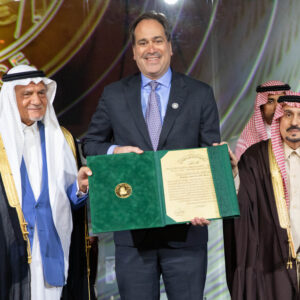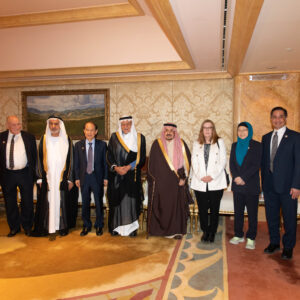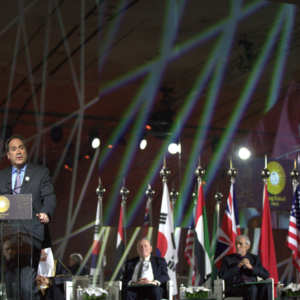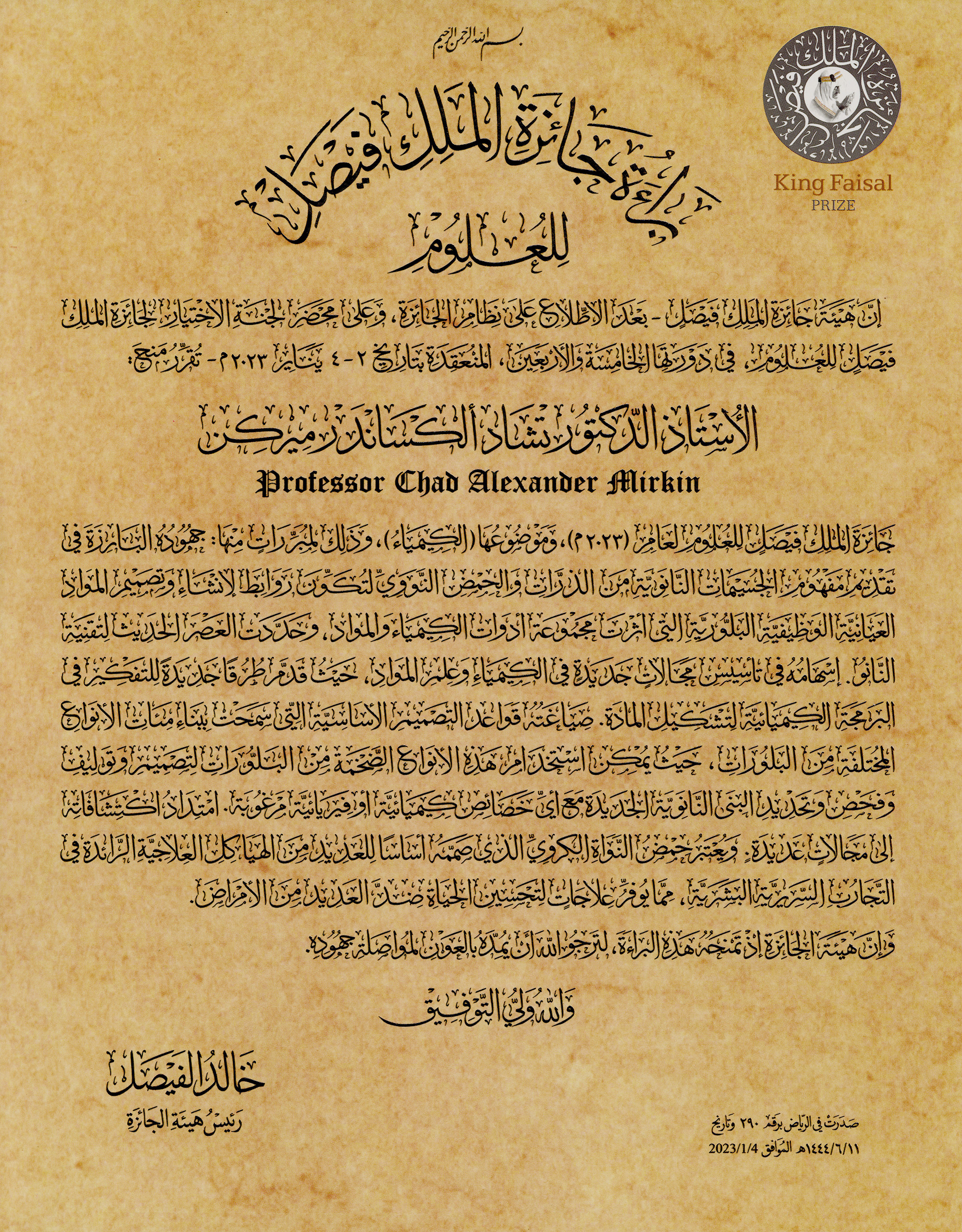
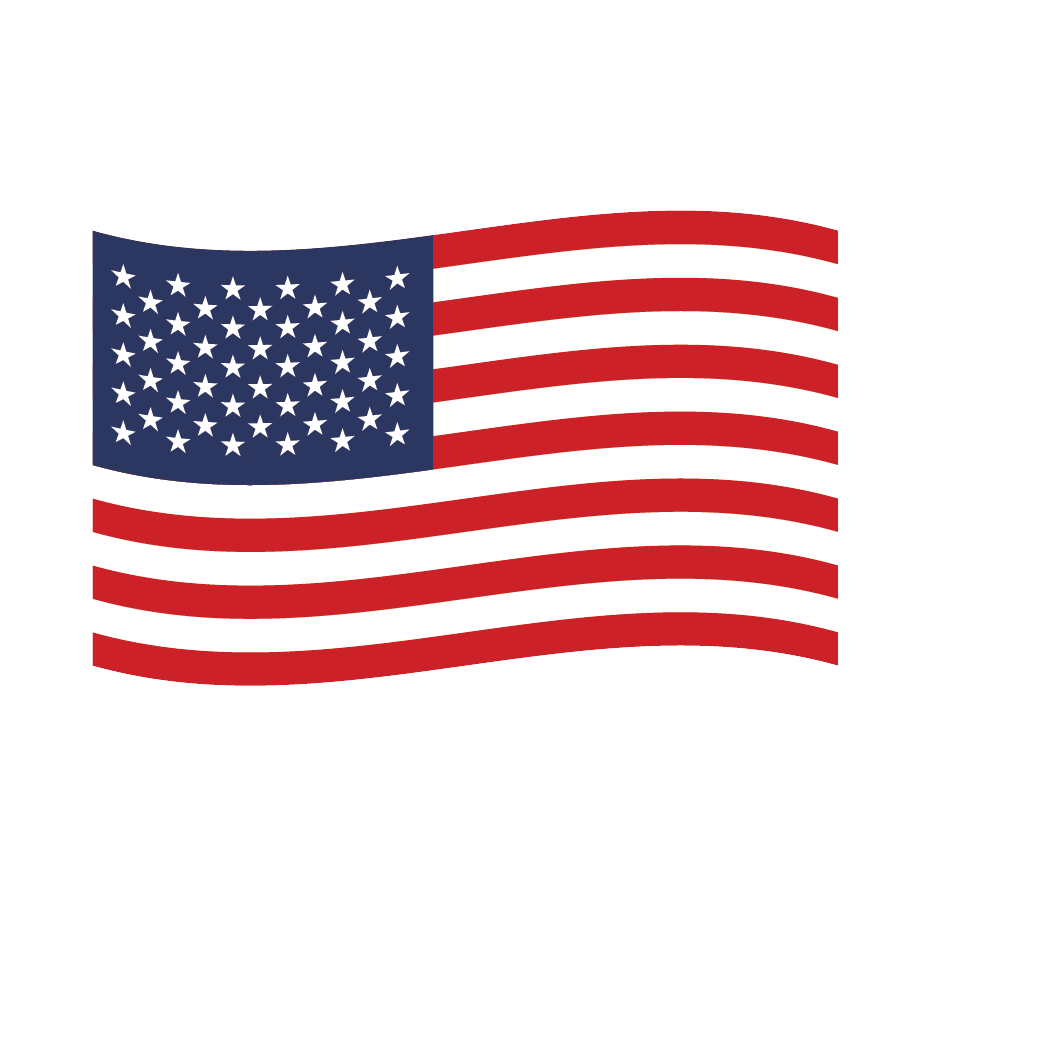
Professor Chad Alexander Mirkin
King Faisal Prize in Science 2023 Laureate
Topic: "Chemistry"
We have developed the world's largest 3D printer and also the smallest 2D printer

Chad Alexander Mirkin received his B.S. from Dickinson College and Ph.D. from Pennsylvania State University in 1989. He trained in chemistry at the Massachusetts Institute of Technology, serving as a National Science Foundation Postdoctoral Fellow under the guidance of Professor Mark Wrighton (1989-91). Following appointment to the faculty at Northwestern University in 1991, he ascended to the rank of Morrison Professor of Chemistry (1997) and then Rathmann Professor of Chemistry (2000). He founded the International Institute for Nanotechnology (IIN) (2000). Currently, he is the Director of the IIN and the Rathmann Professor of Chemistry and Professor of Medicine, Materials Science and Engineering, Biomedical Engineering, and Chemical and Biological Engineering at Northwestern University.
Professor Mirkin’s research has been on the forefront of nanochemistry for over three decades. His invention of spherical nucleic acids (SNAs) has led to his development of a variety of SNA-based molecular diagnostic and therapeutic tools, and he has used SNAs as building blocks to prepare programmable matter based on the nanoparticle “atom” and the DNA “bond,” leading to new ways of thinking about chemical bonding. Professor Mirkin also invented scanning probe lithography-based tools for synthesizing novel surface-based nanostructures useful in materials discovery, cellular analyses, and other applications and delineated new routes to advanced manufacturing via 3D high-area rapid printing (HARP), anisotropic nanostructures via seed-mediated, light-driven processes, and supramolecular structures via the weaklink approach.
An author of >830 papers, Professor Mirkin was the first chemist to be elected a Member of the National Academy of Sciences, National Academy of Engineering, National Academy of Medicine, and American Academy of Arts and Sciences. He is a Fellow of the American Chemical Society (ACS), Royal Society of Chemistry (RSC), Materials Research Society, National Academy of Inventors, and others. He has been recognized with >230 international awards, including the Kabiller Prize in Nanoscience and Nanomedicine, NAS Sackler Prize in Convergence Research, UNESCO-Equatorial Guinea International Prize for Research in Life Sciences, American Institute of Chemists Gold Medal, Society of Chemical Industry Perkin Medal, ACS Award for Creative Invention, RSC deGennes Prize, Wilhelm Exner Medal, and Netherlands Award for Supramolecular Chemistry. He served for eight years as a science advisor to President Obama.
This biography was written in the year the prize was awarded.

